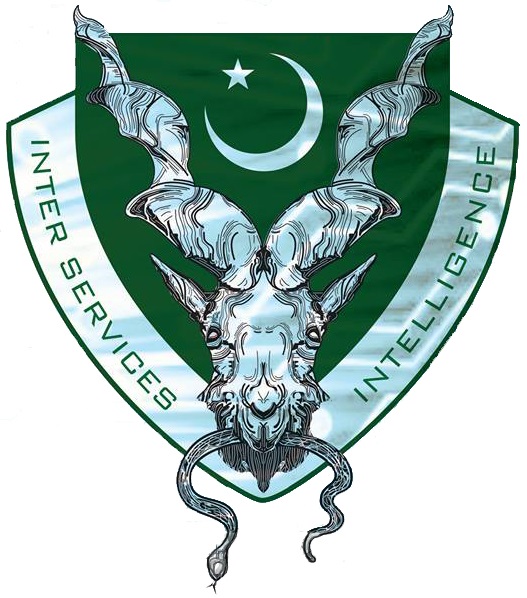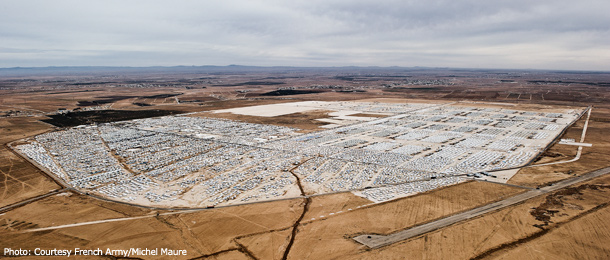- Reconciliation?

 Ever since the ousting of the Taliban government by coalition forces in Afghanistan, Pakistan, having close ties with the Taliban, lost vital influence in Afghanistan. The relationship between Islamabad and Kabul was heavily weakened during the presidency of Hamid Karzai who throughout his time in office pointed towards Pakistan as the supporter of the Taliban insurgency. Hamid Karzai was highly critical of both the US and Pakistan in his 2014 farewell speech for creating perpetual conflict in Afghanistan.
Ever since the ousting of the Taliban government by coalition forces in Afghanistan, Pakistan, having close ties with the Taliban, lost vital influence in Afghanistan. The relationship between Islamabad and Kabul was heavily weakened during the presidency of Hamid Karzai who throughout his time in office pointed towards Pakistan as the supporter of the Taliban insurgency. Hamid Karzai was highly critical of both the US and Pakistan in his 2014 farewell speech for creating perpetual conflict in Afghanistan.
Pervez Musharraf, the former military ruler of Pakistan, recently acknowledged that the Inter-Services Intelligence directorate (ISI) “cultivated” the Taliban under him to counter-balance Karzai’s government which was helping India to “stab Pakistan in the back”. He further noted that the newly elected president Ashraf Ghani is trying to “restore balance” in Afghanistan and should be cooperated with completely in doing so.
Afghanistan and Pakistan have now signed a Memorandum of Understanding (MOU) agreeing that Pakistan’s ISI and Afghanistan’s National Directorate of Security (NDS), intelligence agencies, will be cooperating in counter-terrorism in the region.
- Heated Sentiments
There have been negative reactions from various actors in Afghanistan. For example, Lawmaker Ahmad Shah Ramazan from Balkh in the north said that the deal was anti-Afghan. He went on to say:
“Pakistan is the enemy of Afghanistan, and such an agreement with Pakistan will never be for the benefit of Afghanistan”
The sentiments expressed in such words highlights how polarizing the issue of cooperating with Pakistan is in Afghanistan. Yet such feelings are not productive towards peace and they will not grant Afghans security. Alienating Pakistan’s interests in Afghanistan strengthens India’s regional leverage against Pakistan which is unacceptable to Islamabad. President Ghani has taken a bold step in, as some would say, “dancing with the wolves”, but that may be exactly what’s needed for long-term prosperity.

Just as Afghanistan accused Pakistan of harbouring militants, so Pakistan has also accused Afghanistan of doing the same by harbouring militants perceived to be Indian proxies. In weighing this perception India’s defence minister Manmohan Parrikar recently stated that India should use “terrorists to neutralize terrorists”, pointing to the militancy, allegedly supported by the Pakistani state, in Jammu and Kashmir. In the backdrop of recent events where Tehrik-e-Taliban Pakistan (TTP) militants attacked a school in Peshawar and killed many children these comments by an Indian government official proved to be unsettling for Pakistan as well as a confirmation of Indian involvement in Pakistan. The ISI will want to ensure that any potential threat whether it be within Pakistan or external is brought to account.
- Carrots
 The less influence India has in Afghanistan, the safer Pakistan feels. Pakistan considered “good” Taliban to be militant groups which would operate in Afghanistan and not within Pakistan while the “bad” Taliban were those who, allegedly at the bidding of India, conducted attacks within Pakistan. The new MOU may well be a carrot policy for Pakistan to overcome the “good Taliban, bad Taliban” distinction. Pakistan will now surrender a previously used strategic asset-turned-liability, the “good Taliban”, in order to circumvent the “bad Taliban” threat. This policy shift should address a very real concern of Afghanistan’s NDS, that Pakistan selectively targeted radical militant groups which were a threat to Pakistan while supporting other groups as proxies in Afghanistan for their geostrategic interests.
The less influence India has in Afghanistan, the safer Pakistan feels. Pakistan considered “good” Taliban to be militant groups which would operate in Afghanistan and not within Pakistan while the “bad” Taliban were those who, allegedly at the bidding of India, conducted attacks within Pakistan. The new MOU may well be a carrot policy for Pakistan to overcome the “good Taliban, bad Taliban” distinction. Pakistan will now surrender a previously used strategic asset-turned-liability, the “good Taliban”, in order to circumvent the “bad Taliban” threat. This policy shift should address a very real concern of Afghanistan’s NDS, that Pakistan selectively targeted radical militant groups which were a threat to Pakistan while supporting other groups as proxies in Afghanistan for their geostrategic interests.
President Ghani’s foreign policy has brought Pakistan closer while sidelining India. This is a complete turnaround from Hamid Karzai’s government which sought closer ties with India. Pakistan’s Prime Minister Nawaz Sharif strengthened the newfound resolve by saying that “any effort by any militant or group to destabilise Afghanistan will be dealt with severely and such elements will be outlawed and hunted down”. Abdul Qadir Baloch, a retired Pakistani general and minister stated that president Ghani’s election convinced Pakistan to drop support for Taliban elements in Afghanistan. Reassuring Pakistan, with regards to its eastern frontier, will pave the way towards stability, security and cooperation between the two often at odds neighbours.
- New Horizons
The director for Afghanistan and central Asia at the United States Institute of Peace (USIP) Scott Smith remarks that “the thaw in relations between the two governments is definitely real” while at the same time questioning its longevity. To make this work, both sides need to feel secure with what the other is attempting to do; both Afghanistan and Pakistan are trying to get rid of local militancy thought to be supported by the other. A join venture into counter-terrorism may, very realistically, bring the two nations together as they will work together jointly to secure common areas of interest.

However, Hamid Karzai has brought up a very important point which should be heeded:
“We want a friendly relationship but not to be under Pakistan’s thumb”
The future success or failure of this new venture by the ISI and the NDS depends on both governments’ understanding that they are working together and not under one or the other. This is the surest way to stamp out militancy in both countries. If Ashraf Ghani can reconcile these giants, he will have delivered on this risky decision to start bringing stability to Afghanistan. If not, and the insurgency continues or worsens, it would be tantamount to political suicide as many Afghans would perceive this as the president’s willingness to surrender issues of security to Pakistan, a country many in the Afghan political circles are not fond of.
Pakistan’s interests lie here as well. The success of the cooperation will result in a friendly Afghan government. If Pakistan fails to uphold its commitments then it once again risks alienating Afghanistan completely and giving its regional opponent, India, an upper hand.
Time will tell if president Ghani’s step bears fruit for Afghanistan. Will it usher in strengthened regional security or will it consolidate further mistrust between Afghanistan, Pakistan and their intelligence agencies? We can only hope for the former.




